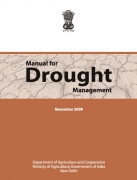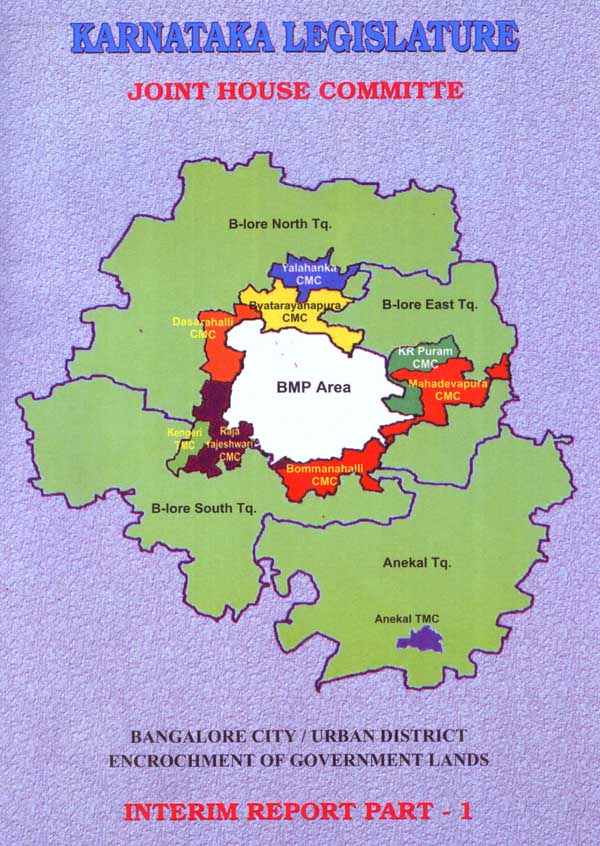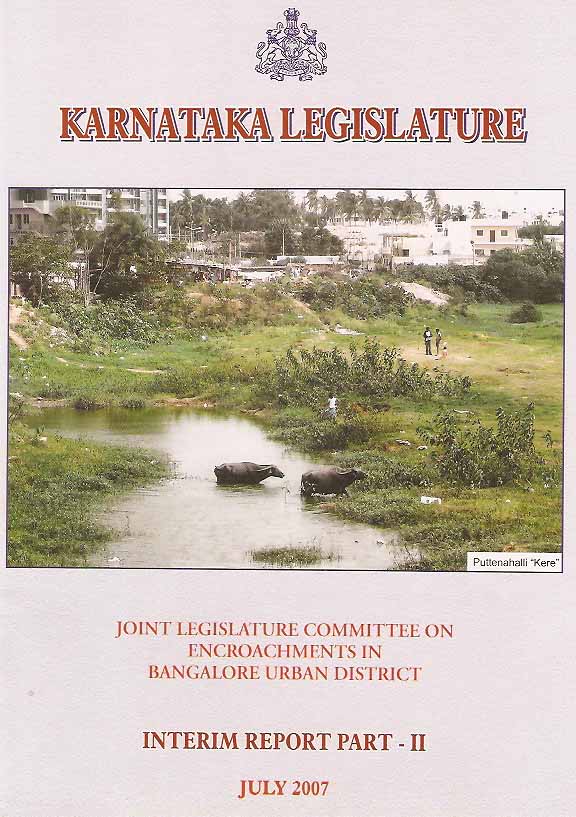/topics/government-programmes
Government Programmes
Water Policy in India - A brief overview: A paper by Centre for Public Policy (IIM Bangalore)
Posted on 20 Apr, 2010 06:30 AMThis paper by the Centre for Public Policy (CPP) of the Indian Institute of Management (IIM) Bangalore adds to the debate on water policy in India, and provides a general overview of the main characteristics of irrigation development post-Independence and a review of its beneficial and adverse impacts. The problems that need to be addressed and measures needed to resolve them are highlighted. It recognizes the vital role of expansion of irrigation in transforming agriculture from one of near stagnation in the pre-independence period to one of sustained growth during the past five decades.
Manual on drought management by the National Institute Disaster Management and the Ministry of Agriculture (2009)
Posted on 15 Apr, 2010 04:13 PM This manual developed by the National Institute of Disaster Management (NIDM) presents a comprehensive approach to drought management and recommends measures that can be implemented for effective drought relief and mitigation. It brings together conceptual issues, institutional framework & operational details, and replaces the colonial famine codes written largely for dealing with hunger and starvation.
This manual developed by the National Institute of Disaster Management (NIDM) presents a comprehensive approach to drought management and recommends measures that can be implemented for effective drought relief and mitigation. It brings together conceptual issues, institutional framework & operational details, and replaces the colonial famine codes written largely for dealing with hunger and starvation.
It has been prepared with the objective of creating synergy between the various programmes being implemented to provide drought relief and mitigation by several levels of government.
The key issues covered in the manual are:
State-level utilization of funds and assets created through Ganga Action Plan - Report by Planning Commission for the Supreme Court (2009)
Posted on 15 Apr, 2010 03:41 PMThe report was prepared by the Water Resources Division, Planning Commission in response to a Supreme Court directive to verify whether the funds allocated to Ganga Action Plan (GAP) had been duly utilized by the States. The report is based on data obtained from Central Pollution Control Board (CPCB) and Ministry of Environment and Forests (MoEF) and field visits made to plant sites in Uttarakhand, Bihar and Uttar Pradesh.
Climate change threats to India's water resources and emerging policy responses - From the book 'Indian climate policy: Choices and challenges', by the Henry Stimson Centre.
Posted on 14 Apr, 2010 11:01 AMThis book published by Henry L. Stimson Centre highlights the richly diverse nature of India's views on climate change through its range of essays. These essays demonstrate and challenge the international perception of India as a monolithic actor with a single set of opinions and views in the climate change negotiations.
In this chapter, the author discusses the strengths and the weaknesses of India's climate policy in the context of the increasing threats that have been identified to the water resources in the country. The author states that India's climate policy is still in its emerging state and argues that though the policy does highlight many important areas related to climate change, it does not give adequate attention to a very crucial area of water management.
Making NREGA work better: A brief note by Public Interest Foundation
Posted on 13 Apr, 2010 01:16 PMThis note by the Public Interest Foundation (PIF) presents a proposal for making National Rural Employment Guarantee Act (NREGA) work better. It offers an alternative to the existing rigid framework for implementation and complex procedures leading to bureaucratization of the implementation process thereby causing uncalled-for delays. The note is a follow-up of its collaborative study with National Council for Applied Economic Research (NCAER) on “Evaluating Performance of NREGA” as well as the Comptroller and Auditor General's (CAG) performance report on implementation of NREGA.
Implementation of National Rural Employment Guarantee Scheme in West Bengal: A field report by the Right to Food Campaign
Posted on 13 Apr, 2010 12:48 PMThis report from the Right to Food Campaign traces the implementation of National Rural Employment Guarantee Scheme (NREGS) in West Bengal and points to the failure of the State in guaranteeing basic entitlements. It asserts that West Bengal is way behind other States, in implementation of this scheme, as per the data on NREGS website.
Joint Convergence Guidelines of the National Rural Employment Guarantee Act and Integrated Watershed Management Programme, issued by the Ministry of Rural Development (April 2009)
Posted on 09 Apr, 2010 09:36 PMThe Joint Convergence Guidelines issued by the Ministry of Rural Development (MoRD) in April 2009, attempts to bring about inter-sectoral convergence in the various watershed management programmes being implemented by the different departments under the MoRD. In particular, it deals with the convergence between the National Rural Employment Guarantee Act (NREGA) being implemented by the Department of Rural Development (DoRD) and the Integrated Watershed Management Programme (IWMP) being implemented by the Department of Land Resources (DoLR).
Dug well recharge scheme (2007-08 to 2009-10) - Revised guidelines with amendments to the scheme by the Central Ground Water Board
Posted on 24 Mar, 2010 03:46 AMThe State sector scheme on artificial recharge to groundwater through dug-wells is under implementation over the first three years of the (current) XI Plan Period (2007-12), in 1180 over-exploited, critical and semi-critical blocks/ talukas/ mandals in seven states of the hard-rock peninsular region of India, namely Andhra Pradesh, Maharashtra, Karnataka, Rajasthan, Tamil Nadu, Gujarat and Madhya Pradesh. The target beneficiary of the scheme are farmers who have privately owned wells, in their agricultural land.
The state of water, sanitation and solid waste management in Doddballapur town - A research report by SVARAJ (2009)
Posted on 23 Mar, 2010 02:26 AM This research report by SVARAJ, is an attempt to assess the availability of basic civic amenities for the citizens of Doddaballapur (a peri-urban town, about 45 km from Bangalore) and the overall environmental condition of the town, as well as identify the aspirations of its citizens for a better, well-planned and inclusive town.
This research report by SVARAJ, is an attempt to assess the availability of basic civic amenities for the citizens of Doddaballapur (a peri-urban town, about 45 km from Bangalore) and the overall environmental condition of the town, as well as identify the aspirations of its citizens for a better, well-planned and inclusive town.
Ramaswamy Joint Legislature Committee Report on the encroachment of lands in Bangalore Urban district (2006)
Posted on 21 Mar, 2010 04:45 AM The Joint Legislature Committee on Encroachments in Bangalore Urban District, was constituted in June 2006 with 14 MLAs and 6 MLCs, with A T Ramaswamy as Chairm
The Joint Legislature Committee on Encroachments in Bangalore Urban District, was constituted in June 2006 with 14 MLAs and 6 MLCs, with A T Ramaswamy as Chairm an. The attached report contains translated excerpts from the original Kannada report released in 2007, as well as a complete detailed version of the interim reports.
an. The attached report contains translated excerpts from the original Kannada report released in 2007, as well as a complete detailed version of the interim reports.
The report written on the basis of spot inspections, land surveys and hearings of various government departments and statutory bodies, concludes that the various state bodies such as the Bangalore Development Authority, Bruhat Bengaluru Mahanagara Palike, City and Town Municipal Councils etc, miserably failed in their duties to protect Government and public land, and have become helpess, tolerant witnesses, and in many cases, active participants, abettors and promoters in these crimes in tandem with the land mafia.





